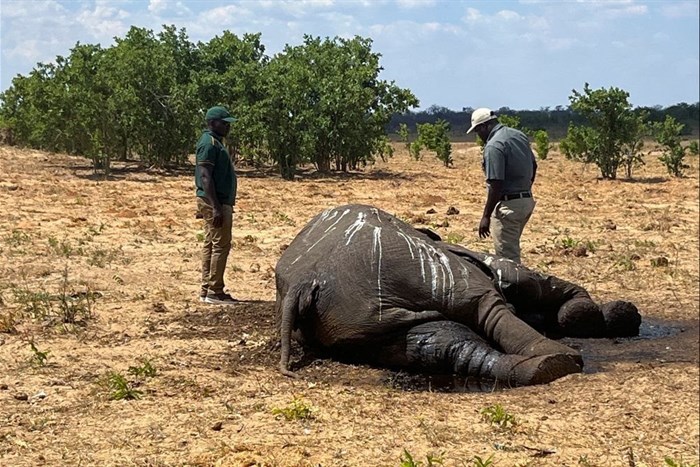
The seasonal El Nino, which causes hotter, drier weather throughout the year, has been exacerbated by climate breakdown, scientists say, a cause of concern at the ongoing COP28 discussions on climate action in Dubai.
Hwange has no major river running through it, and animals rely on solar-powered boreholes, Zimbabwe Parks and Wildlife Authorities (Zimparks) official said.
"We are relying on artificial water because our surface water has declined. Since elephants are water dependent, we are recording more deaths," Zimparks principal ecologist at Hwange National Park, Daphine Madhlamoto, told Reuters.
The elephant population in Hwange is 45,000, and a fully grown elephant requires 200L (53 gallons) of water daily. But with water sources dwindling, the solar-powered pumps at the 104 boreholes or wells have not been able to draw enough water.
Reuters saw dozens of elephant carcasses near watering holes, and park officials said other elephants have died in the bush providing ready prey for lions and vultures.
"The park has been witnessing the impact of climate change. We have been receiving less rains," Madhlamoto said.
Zimbabwe's rainy season runs from November to March, but it has barely rained so far this year. The drought is expected to continue into 2024, according to Zimbabwe Meteorological Services.
Zimparks said animals are being forced to walk long distances to search for water and food, and several herds of elephants having crossed into neighbouring Botswana. Conservation groups are trying to supply extra water by desilting watering holes and pumping more water through solar wells to help deal with the crisis.
Zimbabwe has an elephant population of nearly 100,000, but the capacity only for a little more than half of them, meaning the national parks are overwhelmed, Zimparks said.

Reuters, the news and media division of Thomson Reuters, is the world's largest multimedia news provider, reaching billions of people worldwide every day.
Go to: https://www.reuters.com/